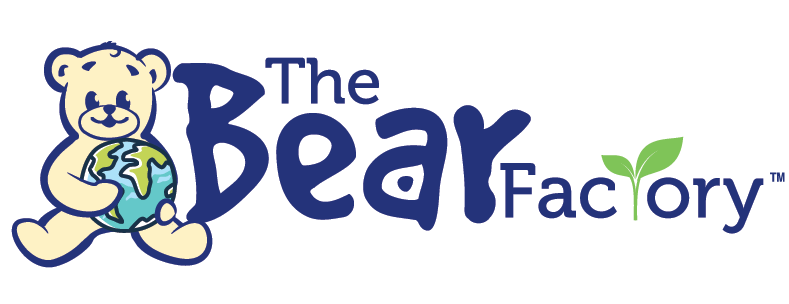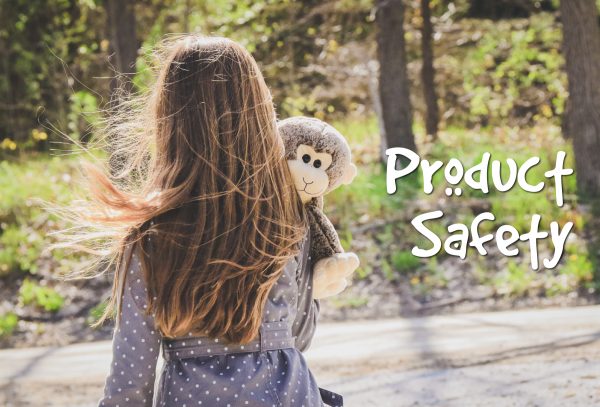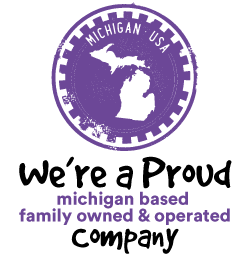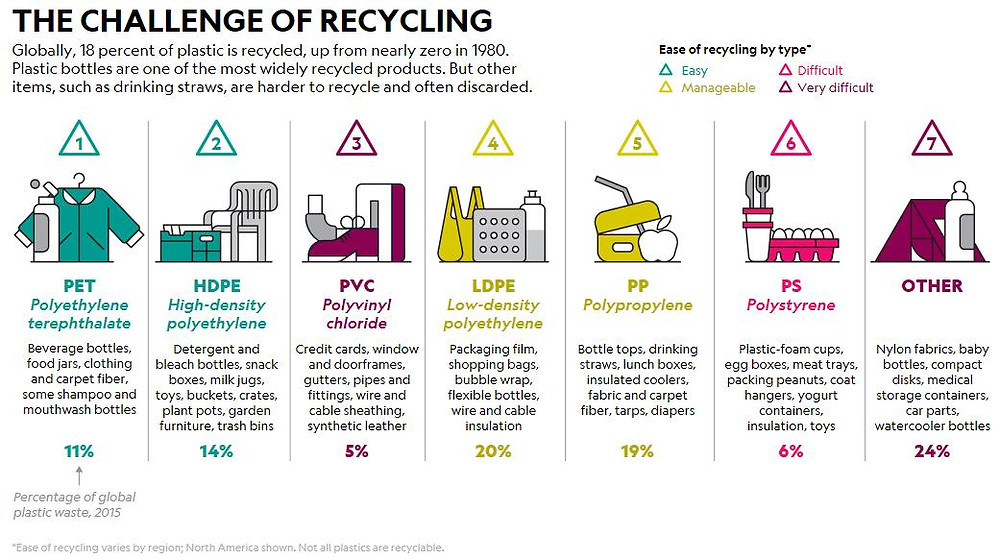Project Inspire

The Truth about Plastic Waste
With the creation of the recycling system, the public was introduced to the seven classifications of plastic resin. This then led to the label requirement of all plastics being given a numerical code between one and seven, designating their classification. The perception was that all of these plastic were recyclable. The reality is that only two of the seven plastics (#1 and #2) are easily recyclable.
The misconception that all labelled plastics are recyclable is why most residential recycling bins are never actually recycled. Consistent contamination of non-recyclable plastics making their way into Materials Recovery Facilities (MRF) can cause damage. Processors can be forced to scrap a whole lot of waste due to the difficulty of sorting through trash effectively.
The Motive
behind the plastic recycling movement was to create public perception that wide use of plastics was green because of it’s ability to recycled. The reality is that most plastics are in fact NOT recyclable.

Recycled Polyethylene Terephthalate (rPET) is the process by which previously recycled packaging materials are collected, sorted, cleaned and transformed into a usable material. This new material can be used for packaging, apparel, and in our case, plush fabrics. This recycled product is usually made from #1 and #2 plastics which can include water bottles, textile waste, and even old fishing nets.
Taking plastics that have an ability to be recycled, supports a Circular Economy model of reusing items opposed to the use of virgin materials. The main downside of rPET are the added costs that can be attributed to the processing of these materials into a usable medium.
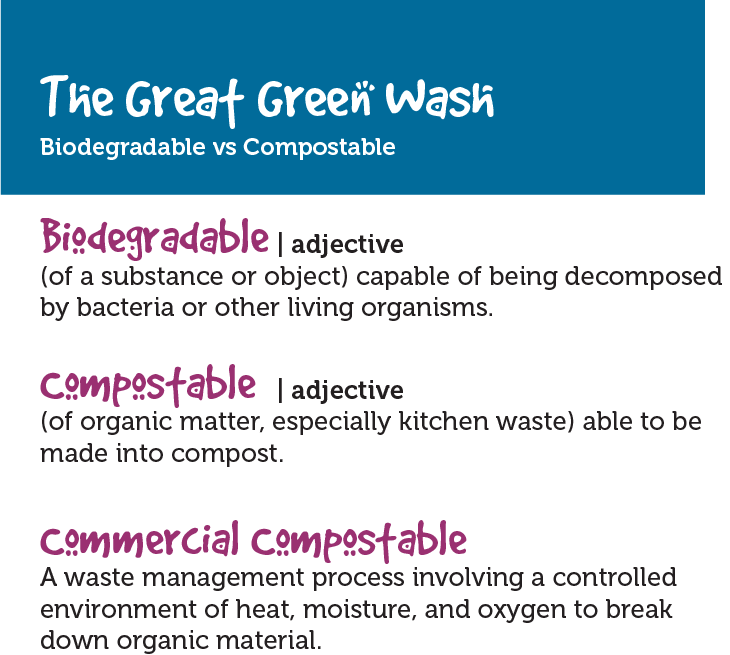
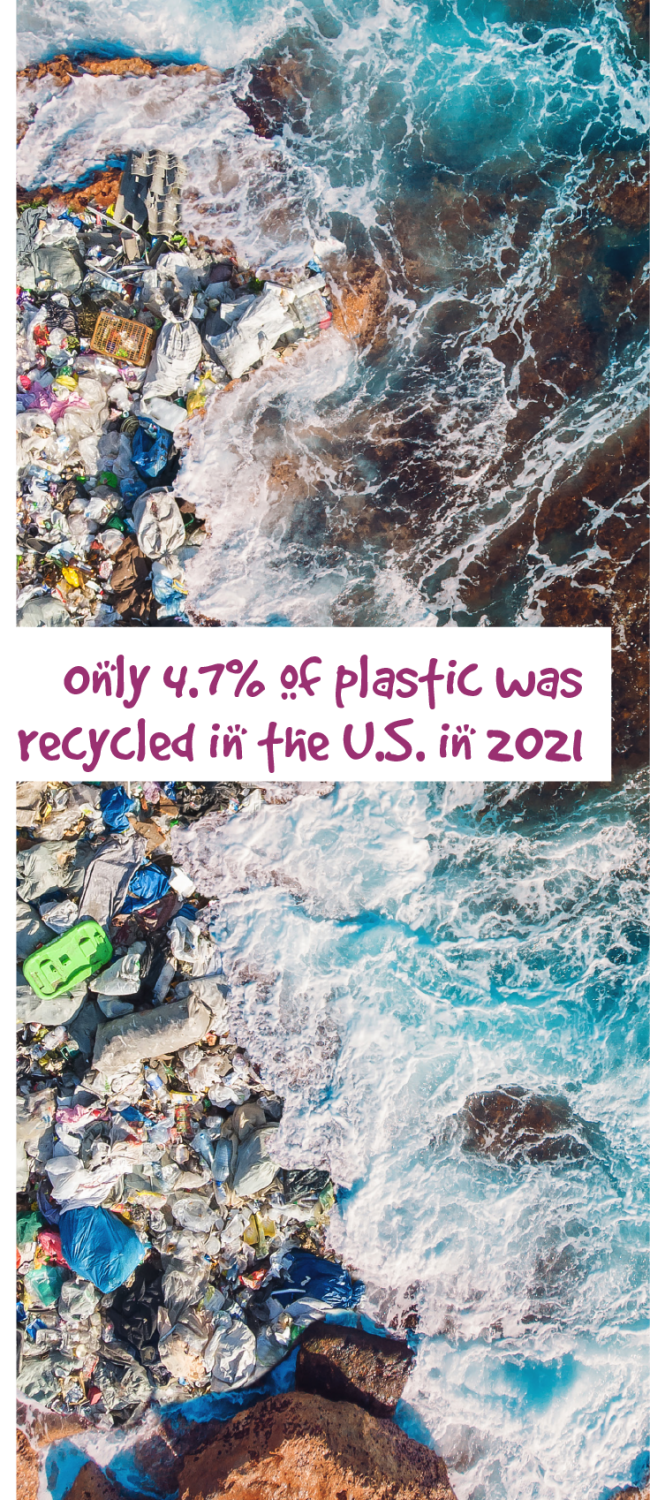
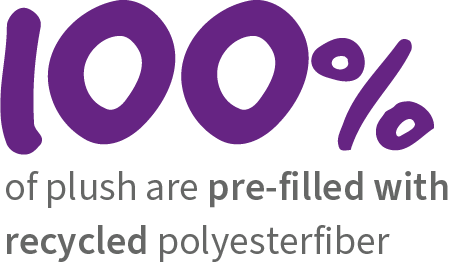
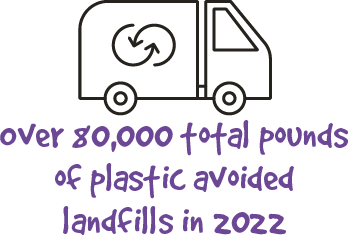
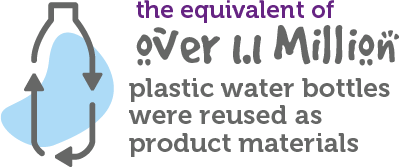
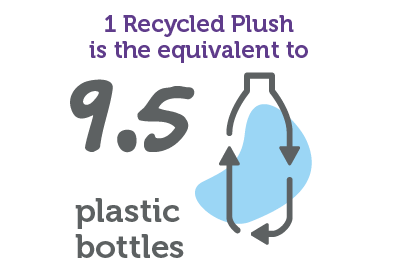
The journey to sustainability can appear to be daunting, but there is light at the end of the tunnel. There are small steps you can make to start your path down implementing sustainable business practices. We don’t expect you to start a picket line over recycling regulations or hunt down green washing businesses on Twitter. What we do hope you do is, make small changes within your daily routine that has a simple question in mind:
How does this impact my home, planet Earth?
-
Be aware of greenwashing
-
check your recycling
-
take the initiative to learn
